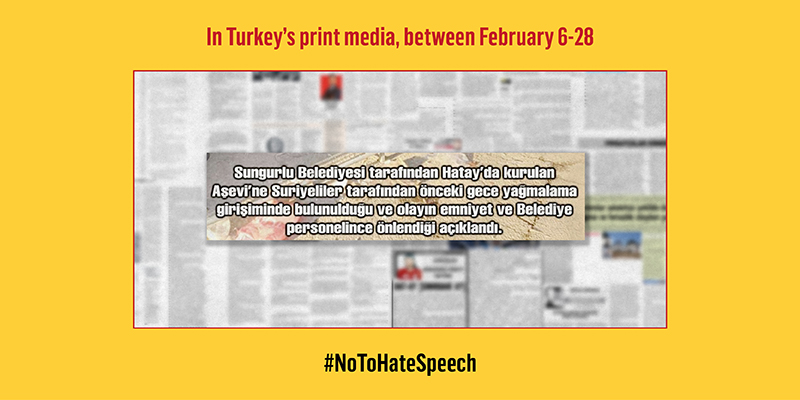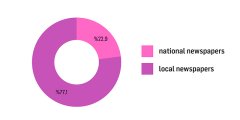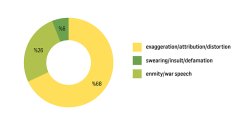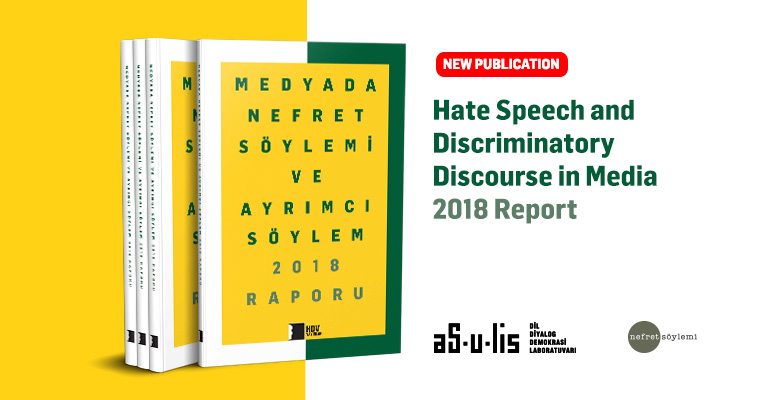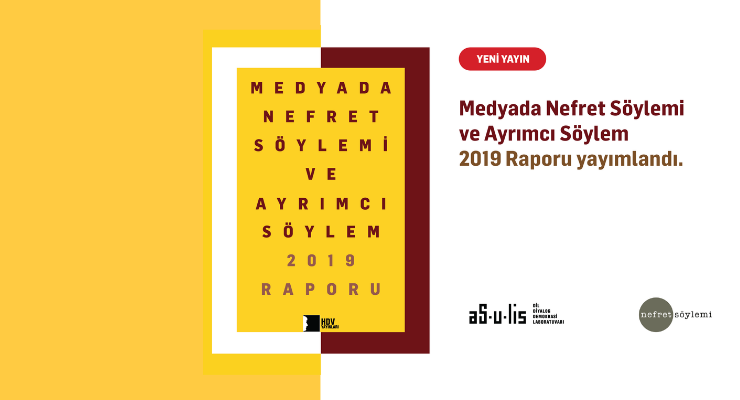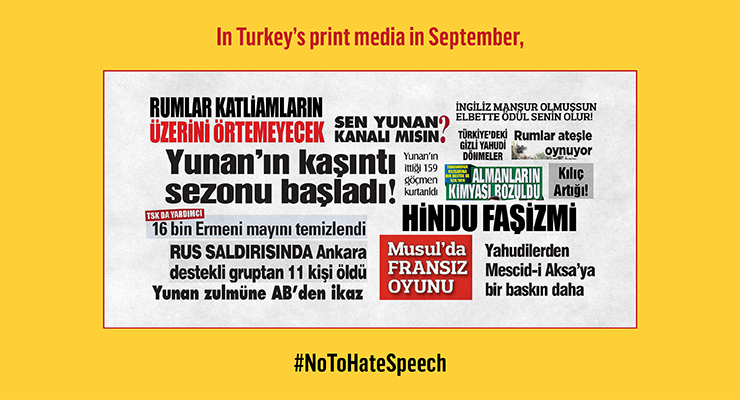As of February 6, 2023, we observe that the destruction caused by the earthquakes that deeply affected 10 of our provinces has, like all disadvantaged groups, made immigrants and refugees more vulnerable and there is an increase in hate speech against these groups.
To analyze how this situation was reflected in the Turkish print media, using keywords we scanned a total of 11,242 news articles and columns published in the national and local press between February 6-28, 2023.
According to this analysis:
- 29 columns and six news articles targeted immigrants and refugees with discriminatory discourse and hate speech.
- 22.9% of the discriminatory discourse and hate speech content identified were published in national newspapers and 77.1% in local newspapers.
We observe different results in the differentiation of hate speech contents in national and local newspapers. This is because local newspapers have direct contact with their reader base in the areas they are published. As news articles and columns published in local newspapers directly affect their readers' daily lives, hate speech contents in these newspapers can have a more significant impact on readers.1 Similarly, as columns are shaped by the writers' political stances and are written in a more subjective language, they have a higher impact area than news articles.2
Data
Distribution of hate speech by national and local newspapers
https://hrantdink.org/images/Asulis/ns-arsivi/800_veri2_EN.jpg
Distribution of hate speech by categories
https://hrantdink.org/images/Asulis/ns-arsivi/800_veri1_EN.jpg
Hate speech against immigrants and refugees was mostly produced through negative generalizations, attribution, distortion, and disinformation. In three news articles and seven columns, the perception that refugees pose a threat to social order, that immigrants are to blame for theft and looting acts and that crime is associated with identity, was reinforced. In these news examples, the Syrian identity was highlighted by associating it with the expressions "looting", "pillage", and "theft". These examples in the exaggeration/attribution/distortion category constituted 68% of the news articles and columns analyzed.
However, it was not mentioned in these news publications that the earthquake occurred in a region where the immigrant and refugee population is predominant.3 The increasing visibility of Syrians was conveyed with expressions such as "Syrian influx", "What are Syrians doing in my land?" and "Refugee invasion", and presented as a "threat of invasion". 26% of the hate speech was classified under the enmity/war speech category were produced by way of coding the identity of refugees as an enemy, by indicating this identity as a potential threat, and through the use of war rhetoric.
The refugee identity was targeted with negative adjectives such as "traitor" and "dishonest". 6% of the hate speech content produced through insults and derogatory expressions targeting refugees was classified under the category of swearing /insult/defamation.
Hate speech and discriminatory discourse were produced on the issues of refugees' enjoyment of rights and freedoms and their increasing visibility. Discriminatory and exclusionary discourse was produced using expressions such as "We don't want refugees", and "Send refugees back".
In examples which were analyzed, the production and dissemination of disinformation, prejudices, discrimination, and violent language against refugees and immigrants were observed. These news, especially those produced by the local press, increase the likelihood of hate crimes against targeted groups. We hope that this study, like other examples, draws attention to the role of the media in producing hate speech, and contributes to the production of an inclusive discourse that is free from discrimination and to the importance of coexistence.
1Az, İ., Ensari, P., & Özkan, Ş., (2021). "Hate speech in Turkish print media: Data of the decade", ed. Altuğ Yılmaz, in Media and Hate Speech - II (105). İstanbul: Hrant Dink Foundation Pub.
Az, İ., Ensari, P., & Özkan, Ş., (2021). "Hate speech in Turkish print media: Data of the decade", ed. Altuğ Yılmaz, in Media and Hate Speech - II (109). İstanbul: Hrant Dink Foundation Pub.
2 Sağıroğlu, A. Z., Unsal, R., Özenci, F. (2023). Post-earthquake Migration and Human Mobility Situation Assessment Report. AYBU-GPM Report Series-15. Ankara: Ankara Yıldırım Beyazıt University Migration Policy Application and Research Center (AYBU-GPM).

This project is financed by the European Union.


